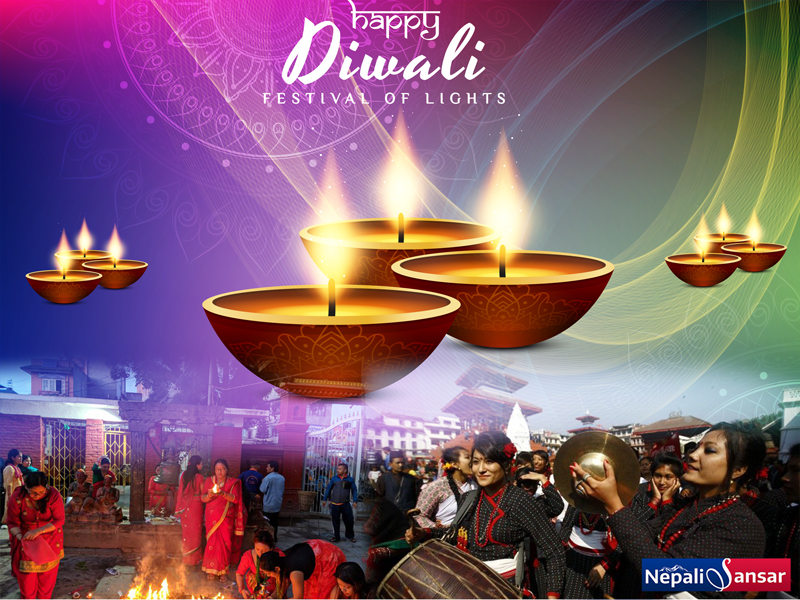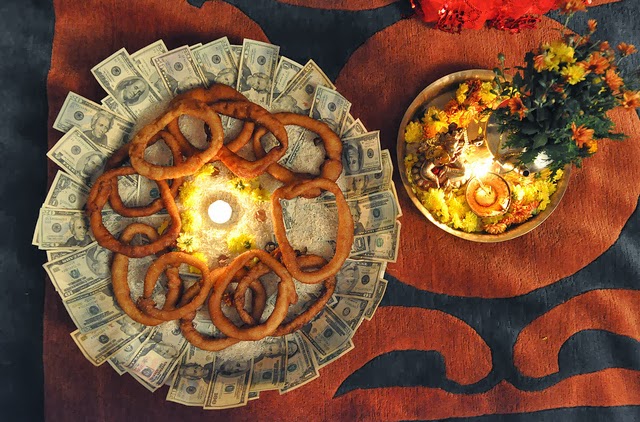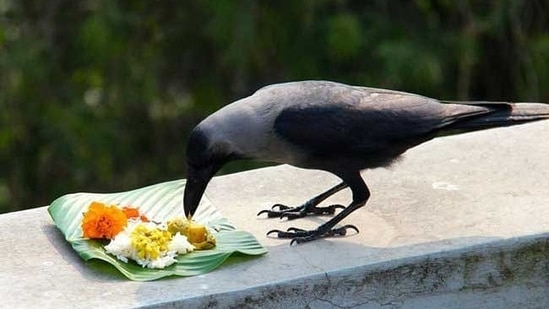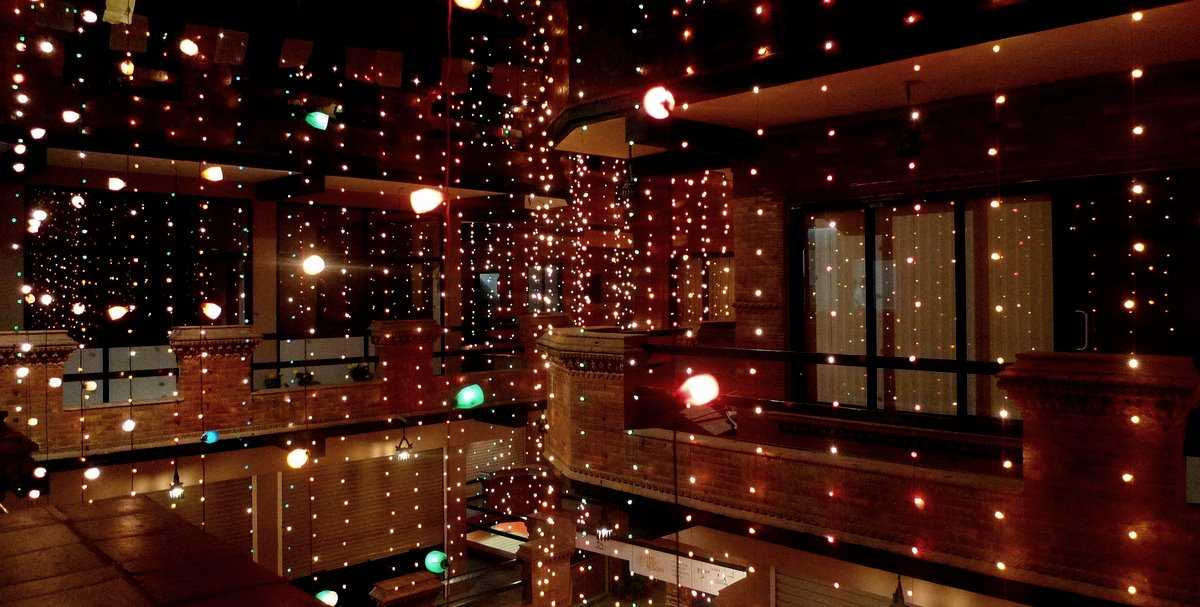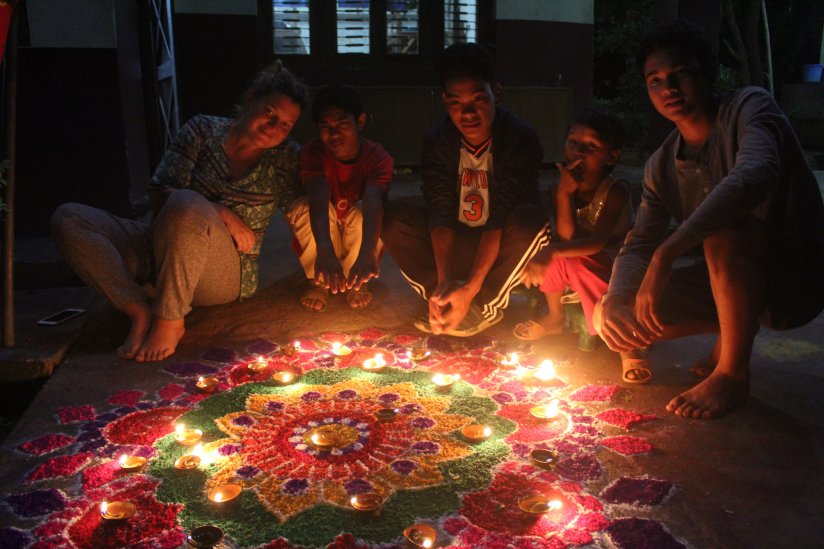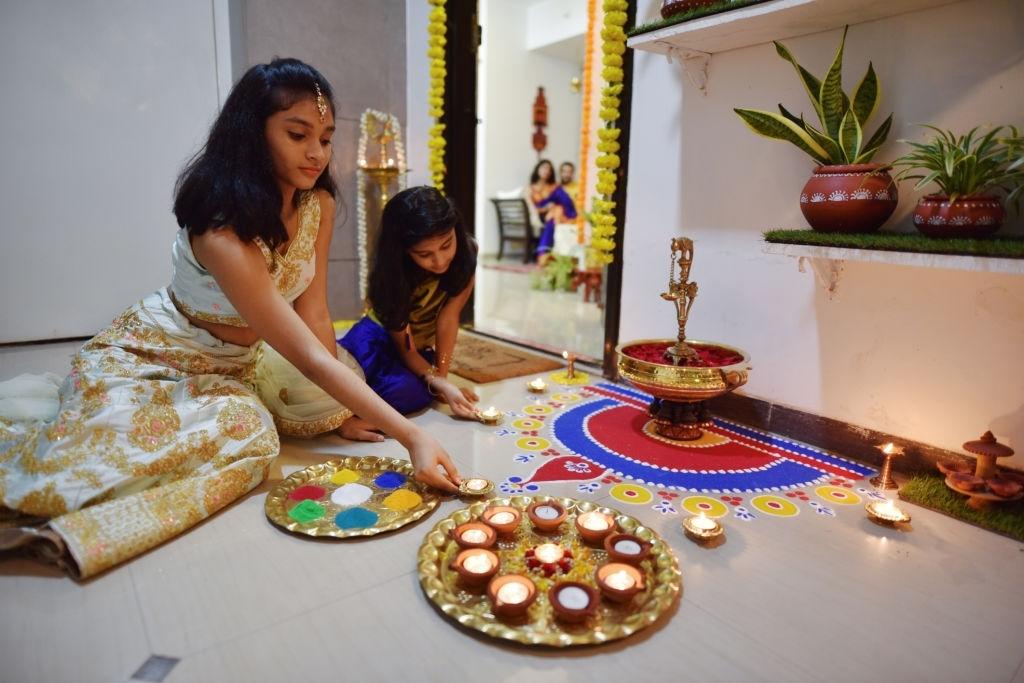Tihar, also known as Deepawali or the "Festival of Lights," is a five-day Hindu festival celebrated in Nepal and parts of India. It is a time of joy and celebration, with people decorating their homes with oil lamps and colorful rangoli designs, and exchanging gifts and sweets with friends and family.
The festival is dedicated to various deities and Hindu mythological figures, and each day of Tihar has its own significance. On the first day, crows and ravens are revered as messenger deities and are offered food and prayers. The second day is dedicated to dogs, who are seen as symbols of loyalty and protection. The third day is dedicated to cows, who are revered as symbols of wealth and fertility. The fourth day is dedicated to the god Laxmi, the goddess of prosperity, and is the most important day of Tihar. On this day, people decorate their homes with oil lamps and rangoli designs, and offer prayers to Laxmi for good fortune. The fifth and final day is dedicated to the bond between siblings, and brothers visit their sisters to offer gifts and blessings.
Tihar is a time for celebration, but it is also a time for reflection and contemplation. Hindus believe that during this festival, the gods and goddesses descend to Earth to bless their devotees. It is a time to honor and thank the various deities for their blessings, and to ask for their continued guidance and protection.
In addition to its spiritual significance, Tihar is also a time for socializing and strengthening family and community ties. People visit their friends and relatives, exchange gifts and sweets, and participate in community events and festivals.
Tihar is a beloved festival in Nepal and parts of India, and its celebration helps to bring people together and strengthen the bonds of community. It is a time of joy, celebration, and reflection, and is an important part of the cultural and spiritual traditions of the Hindu people.




